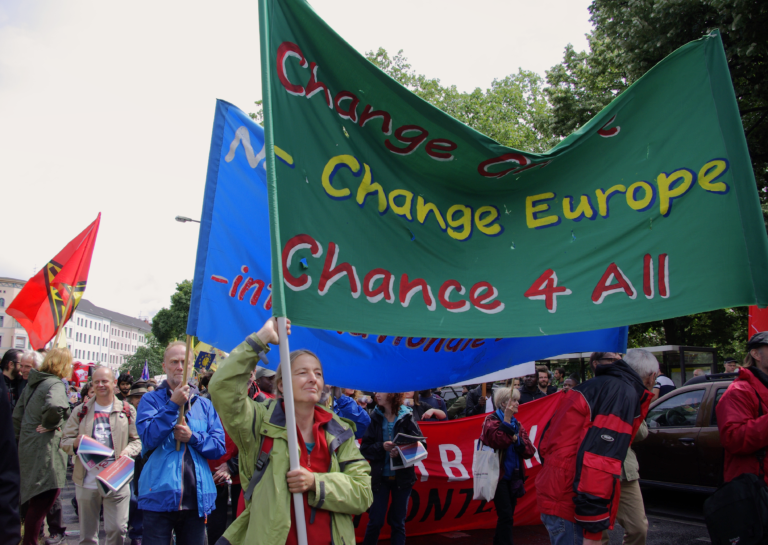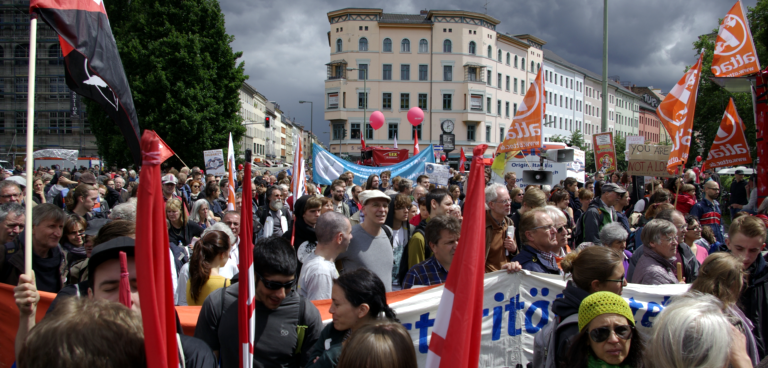Project
Europe’s Current Challenges
Both public and political debates increasingly express concern about the erosion of trust on the level of European citizenry, and that this development might threaten the foundations of a cooperative, stable, sustainable and solidary society. Falling levels of trust in established political parties, the domestic political system and the European Union, as well as the electoral success of populist, anti-establishment and Eurosceptic political parties on the far political right and left are just some examples of changing trust and distrust dynamics. Political movements and actors, as well as ordinary citizens, now openly question the legitimacy of established institutions and governments carried by democratic norms and values.

Trust and Distrust in Governance under Critical Examination
To confront these developments, it is indispensable to produce in-depth knowledge about trust and distrust in governance, and to increase the understanding of all political and social actors affected by current developments in order to propel those actions necessary to prevent harm to democratic governance. For this purpose, the EnTrust project develops a clear and coherent understanding of what forms and levels of trust are conducive for a resilient and vibrant democratic society, and which risks and challenges need to be addressed. In particular, it is devoted to answering the following research questions:
- How strong is trust and distrust in governance across different European countries in regard to different targets of trust and distrust in governance (political governance actors, economic and financial governance actors, experts and scientists) and distinct governance levels (local, national and European)?
- What makes these governance actors and levels trustworthy and untrustworthy in people’s view?
- How important are instrumental and normative assessment criteria?
- Are there substantial differences between countries, and do country-specific cultures of trust and distrust exist?
- What helps to explain different levels and forms of trust and distrust when considering the different addressees stated above?
- Can we identify contextual factors affecting different levels and forms of trust in the countries under study?
- Are we able to highlight those (socio-economic, political, cultural) forces impacting the diffusion of trust and distrust across European citizenry?
- To what degree are trust and distrust reciprocated relationships between populations and political institutions, and to what extent are these reciprocal relations consolidated and/or institutionalised?
- How are trust and distrust constructed, deconstructed, re-enacted or reproduced within the various countries and across governance levels?

Previous research has focused on trust only, following an implicit normative judgement that trust is a ‘good’ ingredient of social order and political governance while distrust is its ‘dark’ side. At the same time, it has privileged an atomistic analysis assuming that trust is a disposition or attitudinal resource individuals either have or lack, and has been centred mostly on standardised surveys. In contrast, the EnTrust project aims to study trust and distrust as distinct, equally relevant and interrelated phenomena. Moreover, we take account of the interdependencies and reciprocities of trust and distrust in the relationships between citizens and governance actors, and apply a multi-methods approach that combines survey-based statistical analysis with experimental research and qualitative, interpretative research tools. Furthermore, EnTrust analyses trust and distrust in governance with a wider focus because we include different types of actors involved in national and European governance: political actors of representative democracy, economic and financial actors, and experts and scientists.


You can watch a short video presentation of the project by EnTrust coordinator Christian Lahusen here:
